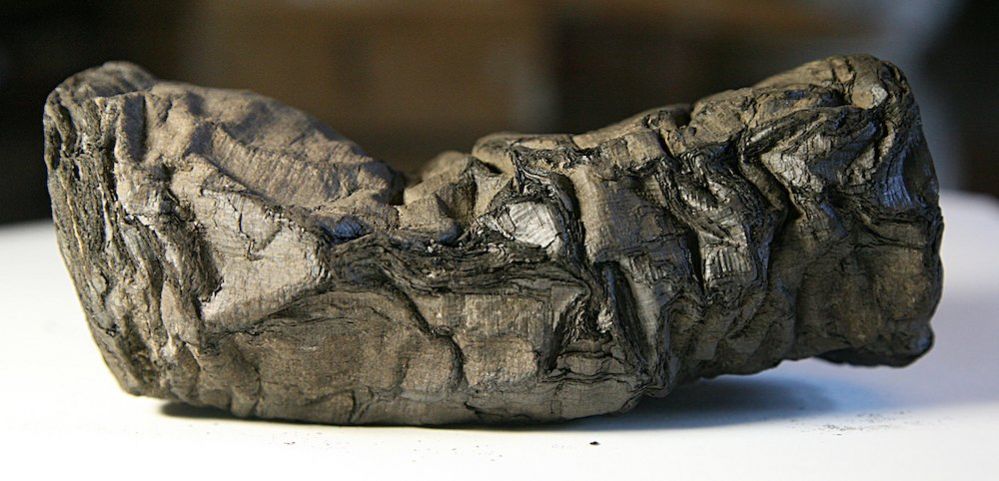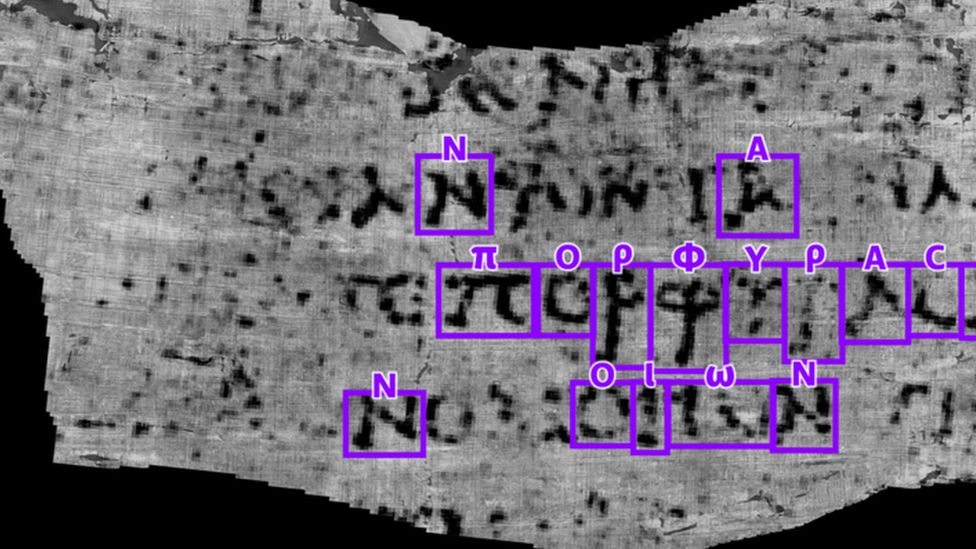Three students have achieved an extraordinary feat, winning a $700,000 prize for their innovative use of artificial intelligence (AI) to unravel the mysteries of a 2,000-year-old scroll. Charred during the catastrophic eruption of Mount Vesuvius in 79 AD, the scroll was preserved in the ruins of the Roman town of Herculaneum, and had remained unreadable until now.

Believed to have once belonged to Julius Caesar's father-in-law, this ancient text offers insights into topics ranging from music to food, shedding light on the philosophical musings of its time. The significance of this breakthrough cannot be overstated, and experts hail it as a "revolution" in Greek philosophy.
The journey to decipher these scrolls has been fraught with challenges. Hundreds of papyrus scrolls were discovered in Herculaneum's library during the 18th century, representing a unique collection of texts from ancient Roman times. However, the volcanic debris that engulfed them rendered them nearly indecipherable, crumbling upon any attempt to unravel them.

Dr. Federica, a papyrology researcher at the University of Naples, aptly describes this predicament as both a "curse" and a "saving grace." The intense heat of the eruption carbonized and preserved the scrolls, which would otherwise have succumbed to decay over time.
Recent advancements in technology have breathed new life into this ancient puzzle. Dr. Brent Seales and his team at the University of Kentucky employed high-resolution CT scans to digitally unroll the texts. However, the ancient ink, blended with black carbon, proved as impenetrable as the papyrus itself.
In response to this impasse, Dr. Seales initiated the Vesuvius Challenge, offering a substantial prize to anyone who could devise a solution. It was a trio of enterprising students—Youssef Nader, Luke Farritor, and Julian Schillinger—who rose to the occasion. Harnessing the power of artificial intelligence and pattern recognition, they developed a model capable of deciphering the ancient lettering.
Dr. Federica lauds this breakthrough as the dawn of a new era in Greek philosophy. The AI model has thus far decoded 2,000 Greek characters from one of the four scrolls scanned, unveiling discussions on the sources of pleasure in life, including references to music and food.
In a poignant passage, Philodemus, the presumed author, contemplates whether scarcity enhances pleasure, a question that resonates across millennia: "as too in the case of food, we do not right away believe things that are scarce to be absolutely more pleasant than those which are abundant."
Looking ahead, the team behind the Vesuvius Challenge aims to leverage this technology to decipher 90% of all four scanned scrolls this year, with hopes of eventually deciphering all 800.
:focal(1000x752:1001x753)/https://tf-cmsv2-smithsonianmag-media.s3.amazonaws.com/filer_public/3b/df/3bdf846f-c28f-4afd-8534-4024eef0db20/scrolls.jpg)
This intersection of ancient wisdom and modern technology has yielded remarkable results, unlocking insights into the past while inspiring new avenues of inquiry. As AI continues to evolve, so too will our understanding of history, ensuring that the voices of antiquity remain heard in the digital age.

